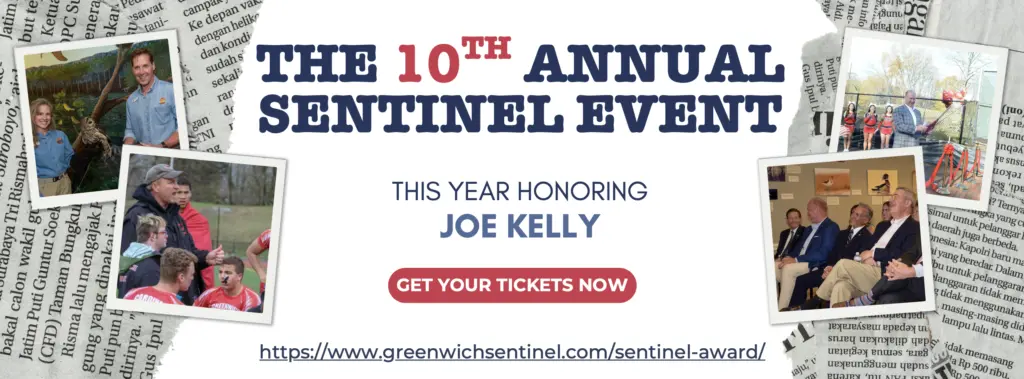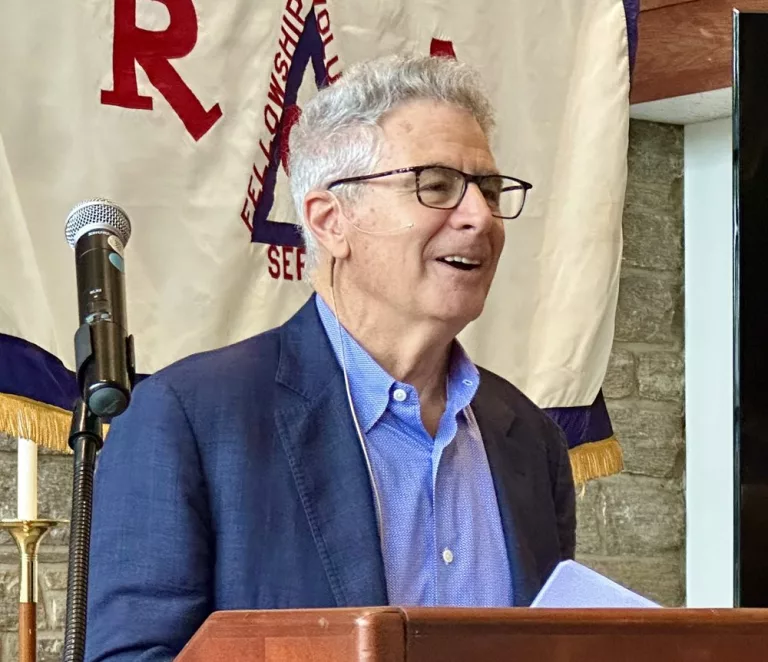By The Rev. Marek Zabriskie
I recently had to put down our beloved almost fourteen-year-old Corgi, Winston, who has given us more love than we could possibly shower upon him. He was diagnosed with incurable cancer. Nine days later we had to release him and let him soar to God.
Upon diagnosing him with masses in his organs, our vet said, “I suggest that you spoil him for a few days before you put him down. Feed him steak.” That advice worked for a Sunday dinner, but not again, as he refused to eat. But I took him each day on a field trip to one of our favorite places in Greenwich.
We visited Bruce Park and Tod’s Point. We have sat on park benches and laid on the beach. We watched as the seagulls flew, the ducks paddled, and the egrets stood like watchful sentinels. We listened to waters lap against the shore. Watching nature soothed our souls and reminded us that we are dust and to dust we shall return.
I am comforted by a firm belief that our pets will join us in heaven. It would not be heaven without them. But when a beloved pet dies it is the end of an incredible friendship, and one that often symbolizes an entire chapter of our family’s life.
Winston was my best friend. He was my sunshine. He gave me someone to care for and lavished me with love. He led me outdoors to watch him chase white tail deer or watch him swim in ponds and herd Canadian geese. He had a spectacular personality. How blessed we were to have had him for almost fourteen years.
How often it is only when someone we love is very ill, or we get a terrible diagnosis, or we lose someone dear that we take stock of what truly matters in life and how trivial other things are.
The novelist E.M. Forster wrote, “Death destroys a man: the idea of Death saves him.” Remembering that life won’t last forever makes us enjoy it all the more today and to focus on the extraordinary miracles in the ordinary things around us. St. Paul wrote, “I have fought the good fight, I have finished the race, I have kept the faith.” (2 Timothy 4:7)
Most of us would like to be able to say words like this when our days draw to a close. We would like to know that we have done our best and not look back with regrets.
As a young man, Paul hunted down Jesus’ followers. He was a proud and zealous Pharisee, who was arrogant and dogmatic. But after having experienced one of history’s most profound conversions, after being cared for by the very people he had persecuted and protected from would be assassins, and after being scourged, ship-wrecked and stoned, Paul softened. He became more vulnerable, humble, wise and human.
He discovered what truly mattered most wasn’t the outward and the visible but something inward and spiritual. The things that truly mattered were not religious laws and doctrines, but the gift of love, acting with kindness, having genuine relationships, receiving and offering forgiveness, humility, faith, hope, and compassion.
“I have fought the good fight, I have finished the race, I have kept the faith.” Paul wrote these words when he was incarcerated in a Roman jail. They were addressed to his beloved protégé Timothy and to the fledging Christian community in Ephesus.
When we are younger, we measure our lives by accomplishments. When we are older, we measure our lives by relationships. We move from searching for success to seeking significance and sharing it with others.
When each of our days draw to an end, we can die more peacefully, if we know that we have the love of our spouse, the respect of our children, the support of wonderful friends and to know that we have served God faithfully and contributed to the lives of others.
In his book From Strength to Strength, Arthur Brooks, offers this suggestion:
…imagine it’s your last year of life, as well as of work. On the Sunday afternoon
before the first day of each month, contemplate these questions: If I had one
year left in my career and my life, how would I structure this coming month?
What would be on my to-do list? What would I choose not to worry about? I am
willing to guess that ‘taking an extra work trip at the expense of seeing my
spouse’ and ‘staying late to impress the boss’ are not items that will be on
your schedule. More likely, ‘take a weekend away” and ‘call my friend” will show
up instead.
I might add, “Spend more time with my beloved dog.” The secret to finding happiness is to accept that life is finite and to focus on things that truly matter while we have the time.





